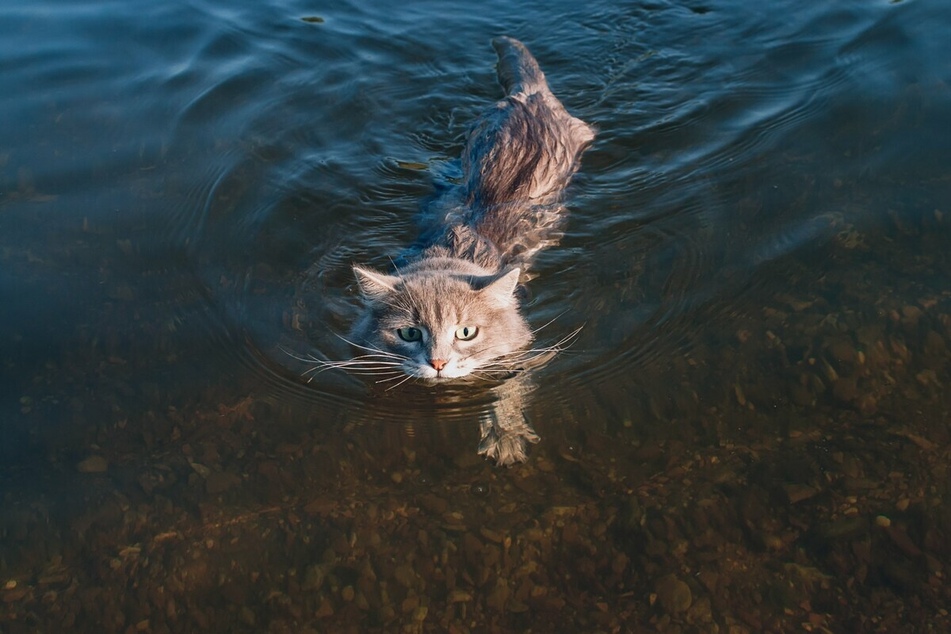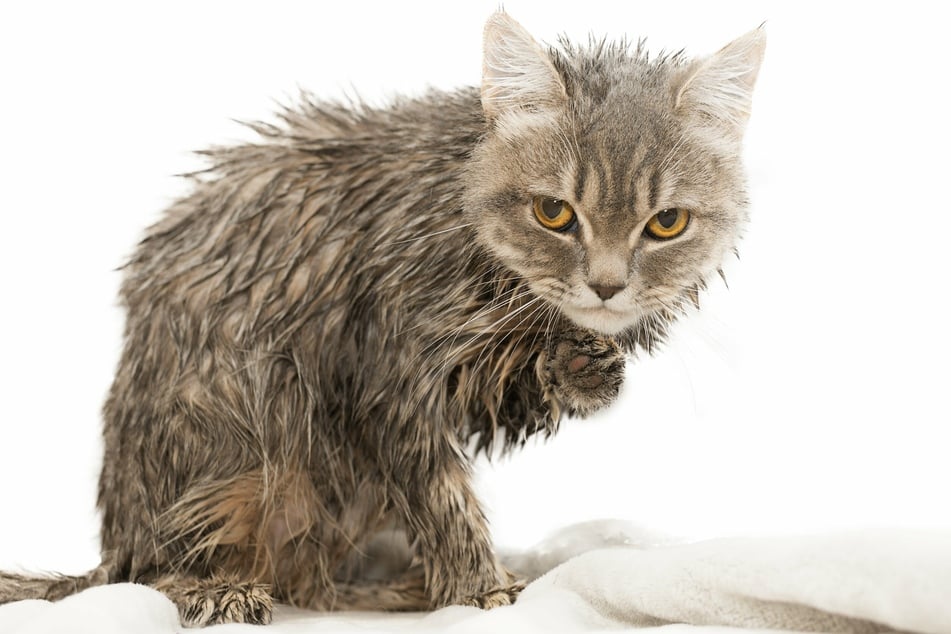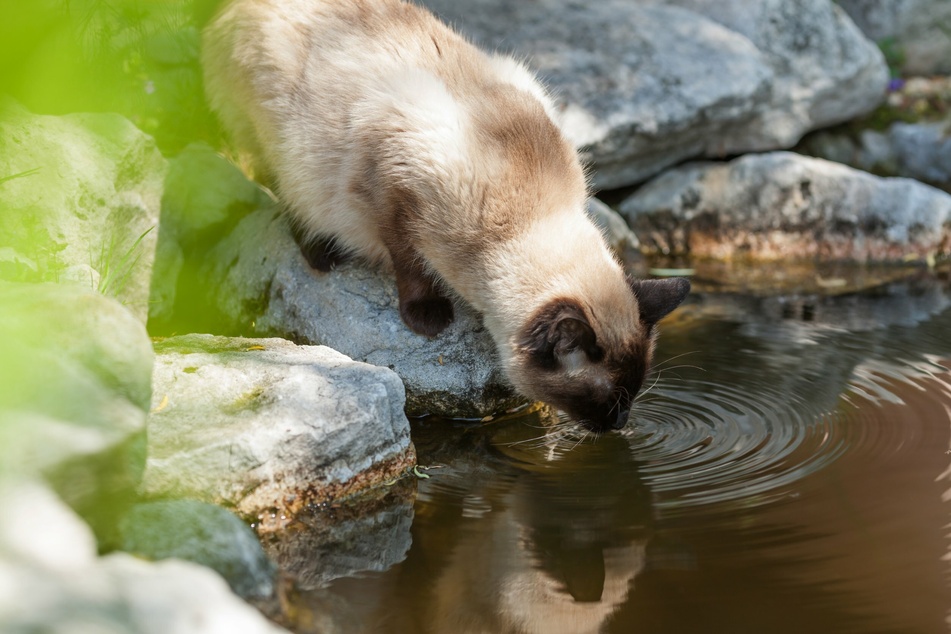Can cats swim? Why furry felines hate the water
If you've ever tried to bathe your cat, your many scratches and bites are a pretty good indicator of how much it hates water. Why is it that cats hate water so much, and, if left alone, can cats swim?

Have you ever noticed how utterly baffled cats are by water? How confused they get when you take a nice, lovely bath on a Thursday night?
Well, considering just how much cats seemingly despise water, it's hardly complicated to understand why their little brains might get a bit confused.
While there are cats who genuinely enjoy water, thrive in the rain, and like to go for a bit of a swim every now and again, most cats despise water more than pretty much anything else.
Why do cats hate water so much and, if they find themselves out of their depth, can they actually swim?
TAG24's guide has all the answers.
Why do cats hate water?

Anyone who has seen a cat sprint in from the rain knows just how much they despise water (Well, most of them. But more on that later).
Why, though? Isn't gettin' a little wet every now and again heavily pleasant?
Well, not for cats. Here are a few reasons why cats hate water so much:
1. Water limits mobility
A cat's coat is not waterproof or water-repellent. Instead, its fur will soak up water like a sponge, making the cat much heavier and significantly sluggish.
This not only affects their mobility, but also their looks – and we all know how vain cats can be. More importantly, though, this limited mobility means that it becomes difficult for a cat to escape danger, something that will cause these feline friends a great deal of stress.
2. Water creates the danger of hypothermia
A cat's fur is critical for its temperature regulation. They do not sweat like humans, so their fur is much more important than our hair. If this fur gets wet, the protection function it plays is significantly impaired. The moisture sticks to their bodies like wet tissue and greatly increases the risk of them getting cold very quickly. If it's cold outside, your poor kitty could get very sick, very quickly!
3. Water impairs a cat's sense of smell
Cat's little noses may be small, but they're darn-well powerful. This impressive odor detector helps warn a cat against danger, and is incredibly important for a cat's sense of place and orientation.
Their sense of smell is so powerful that they actually use their own body odor to help navigate. But if their fur is wet, that smell is lost, and they could have a whole world of trouble. This body odor will need to be restored by a whole lotta lickin'!
Can cats swim?

While cats absolutely despise being in water, hate getting wet, and aren't going to take a voluntary bath, they are capable of swimming instinctively and won't drown if they find themselves in a deep water.
It is, however, a horrifying experience for our velvet-pawed friends. Interestingly, while cats hate swimming and being inundated with water, they do find dripping faucets bizarrely fascinating.
Cats can swim instinctively, but will always try to avoid large bodies of water.
In other words, don't try to make them swim. That would be uncool.
How do cats swim?
Much the same as dogs, cats swim purely out of instinct. When a cat finds itself in water, it can quickly orient itself so that its head is above water, and can make sense of what's going on.
As Tweety would say, your "puddy-tat" will try to make its way directly to the nearest shore or solid ground. How will it do that? Well, by paddling with its four adorable paws, of course!
Did you know that cats have webbed-like feet, with bits of skin between their toes helping them paddle? This webbing actually helps them walk on land as well, but is mainly helpful for swimming.
Cats can swim for quite a few minutes before they get too tired to continue. How long they can swim for depends on a number of factors:
- Age
- Health
- Weight
- Water temperature
Cats that like to swim
Many people think that all cats hate water, but that's not entirely true.
There are actually quite a few species of cats that like to bathe and swim. They include:
- Turkish Van
- Bengal cat
- Burmese
- Indian Fish Cat
- Maine Coon
- Siamese
- Sphynx
- British Shorthair
- Abyssinian
Do cats actually hate water? Here's what we know
Do cats hate water? Yes, for the most part. Will cats drown if you drop them in a bath tub? No. Cats are instinctive swimmers, but they still usually loathe water. They will do anything to avoid having to swim and, considering why they dislike getting wet, it's pretty understandable.
While cats are naturally able to swim, and would be able to save themselves in a dangerous water-related situation, they prefer to keep themselves dry and avoid water activities. In other words - don't take them to the beach.
Cover photo: 123rf / Alexsfoto





